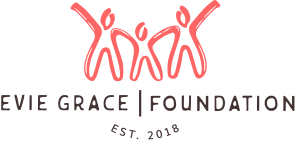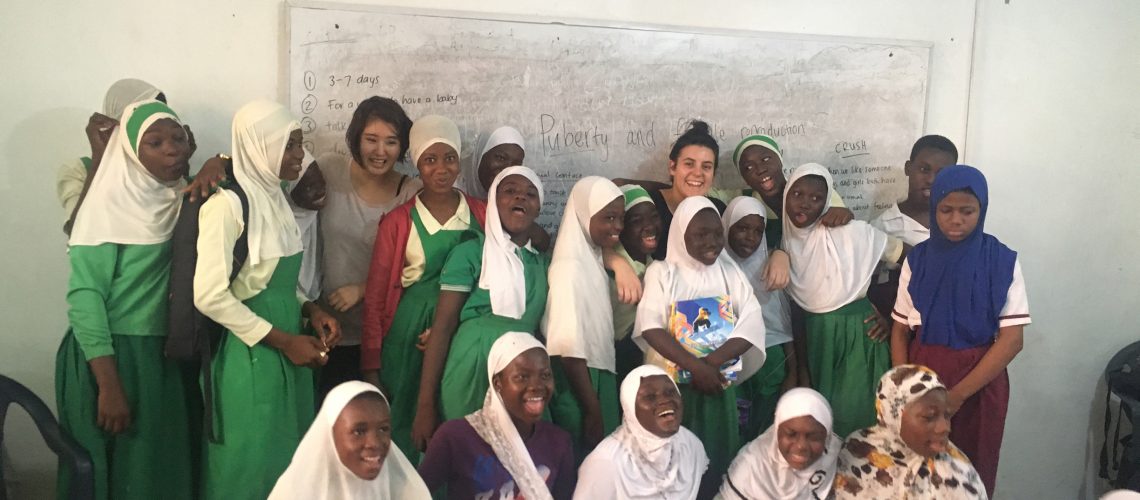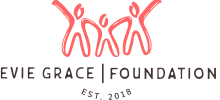Formative experiences, fortitude and self-sacrifice, are fundamentals for not-for-profit start-ups and the Founder of the Evie Grace Foundation (EGF), Maddison Kent, embodies these principles entirely. As an Australian non-profit organisation, the Evie Grace Foundation is ‘committed to eliminating child exploitation through community empowerment and education programs in Kenya’ [1]. Kent highlighted the formative experiences that compelled her to pursue an international development and humanitarian career, but she emphasised the sacrifices and emotional toll that accompany work in the non-profit sector. The EGF partners with local Kenyan organisations and as the Founder of a Western-established foundation, Kent promoted the importance of self-reflexivity.
The journey to an international development career is often sparked by inspiring and challenging experiences that combat our comfortabilities. Kent described her ever-present desire to help other people, which led her to studying an International Development degree. Alongside this, she volunteered internationally for six months and experienced first-hand the shortcomings of voluntourism. Despite the unsatisfactory practices of voluntourism she encountered, she acknowledged that it was these experiences that ‘solidified what [she] wanted to do and the path that [she] wanted to take.’ The exposure to the failures of initially well-intentioned endeavours, like voluntourism, confirmed her future aspirations and an article by Julian C. H. Lee et al, published in The Commonwealth Journal of International Affairs, thematically parallels this aspect of Kent’s experiences. The researchers interviewed sixteen practitioners from the humanitarian and development sectors who corroborated that they ‘had experiences that enabled them to realise their own privileged place in the world compared to others, and to feel uncomfortable with it.’ Like the interviewees, Kent also recognised the value of engaging with different cultures and noted that it was an important aspect of pursuing an international development career.
Self-starting a career in the non-profit sector does not come without its fair share of sacrifice and emotional investment. In the Harvard Business Review, Seghal outlined the benefits of two careers rather than one and noted that individuals should subsidise their skill development. Likewise, Kent has dual careers, with one supporting the other. She works tirelessly in the Australian hospitality industry to support the EGF and revealed that she devotes ‘a lot of her income into [the charity] to build [it].’ Kent has made significant financial sacrifices to ensure that the projects can continue in Kenya. De Santisteban, in Development in Practice contributed to the notion of personal sacrifice and argued that ‘either those living in the First World must give up their lifestyle, or there will never be universal justice or well-being’ which resonates with the life that Kent leads: minimalist. She prioritises and rather than indulge, her financial commitment is to children in Kenya.
In addition to financial sacrifices, there is a substantial emotional investment in coordinating development projects. Kent contended that mental strength is essential to be able to manage the social issues prevalent within the development sector. In a similar vein, Matt Wade reported on Jess Lees, an Australian humanitarian aid worker in the Sydney Morning Herald, who also recapitulated the mental and physical challenges of work in this sector. Similarly, Kent expressed the need for preparedness to endure emotional hardship. Upon reflection on a life-changing and devastating moment, she questioned, ‘how are you going to be able to deal with one day a child dies and the next day you still have other children to take care of?’. In reality, there is no spare time to grieve in solitude because there is a responsibility to take care of other children, and she admitted that it is an incredible emotional toll on an individual. Thus, emotional fortitude is required to keep persevering despite all odds. In preparation for the regularity of heartbreaking events, she encouraged that you work on yourself and identify the intentions to get involved in this field. Kent reasoned, ‘if you have got unresolved issues yourself, it is going to be difficult to give yourself to the kids or career you’re trying to build, you’ll always [think] something is holding [you] back.’ Within the development sector, it is not only your superior or colleagues that rely on you but the lives of those you seek to help. Although, Kent highlighted that despite the adversity, the most rewarding aspect of her life as a Founder, is the transformation of the kids – that is what makes it all worthwhile.
Once intentions are examined and a career is secured within the international development sector, self-reflexivity is vital. Nilson, in the Journal of Transcultural Nursing, supported being actively self-aware and culturally competent in order to deconstruct worldviews, and Kent reiterated the importance of reflexivity and critical thinking when working cross-culturally. As a Founder of a Western-established organisation, there have been occasions that she has received negative feedback because of her skin colour. She was ‘aware of [her] whiteness’, strives to work in partnership with Kenyan organisations and is determined to ensure that when a local can do something, they should be the leaders of change. Kent restated that understanding cultural complexities is key in the non-profit field and you should be prepared to not be accepted.
Maddison Kent provides insight into the life of a non-for-profit Founder and offers valuable questions that need to be considered. If you have had a life-changing experience and are resolute about pursuing an international development career, are you prepared for the sacrifice, the emotional fortitude and continuous obligation to be self-reflexive?
References
- De Santisteban, AV 2005, ‘The Poor Will Always Be with Us-and so Will NGOs’, Development in Practice, vol. 15, no. 2, pp. 200–209, viewed 3 June 2020, Taylor & Francis Online Journals Collection database.
- Evie Grace Foundation n.d, About Us, Evie Grace Foundation, viewed 29 May 2020, <https://eviegrace.org/about-us>.
- Lee, J C. H, Battersby, P, Harris, V, Hemana, C & Romis, P 2019, ‘Australia Turning Inwards? Insights from Humanitarian Australians’, The Round Table, vol. 108, no. 5, pp. 543–552, viewed 1 June 2020, Taylor & Francis Online Journals Collection database.
- Nilson, C 2017, ‘A Journey Toward Cultural Competence: The Role of Researcher Reflexivity in Indigenous Research’, Journal of Transcultural Nursing, vol. 28, no. 2, , pp. 119–127, viewed 3 June 2020, SAGE Perpetual Access database.
- Sehgal, K 2017, ‘Why You Should Have (at Least) Two Careers’, Harvard Business Review, 25 April, viewed 2 June 2020, <https://hbr.org/2017/04/why-you-should-have-at-least-two-careers>.
- Wade, M 2017, ‘You can imagine what my parents thought’: Australian aid worker Jess Lees’, The Sydney Morning Herald, 8 April, viewed 30 May 2020, <https://www.smh.com.au/world/you-can-imagine-what-my-parents-thought-australian-aid-worker-jess-lees-20170407-gvfqe8.html>.
Written by: Holley Sutcliffe-Carey


